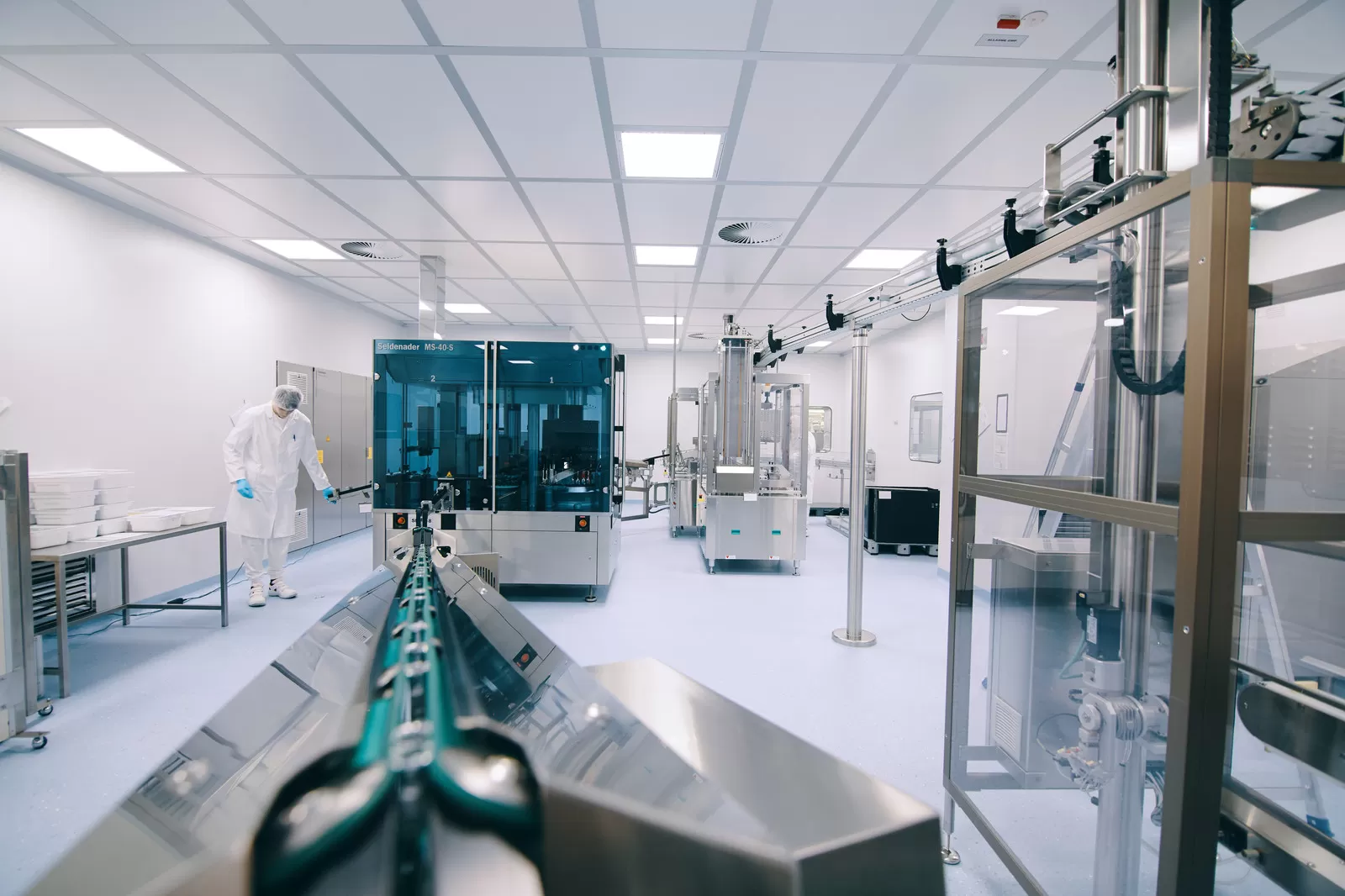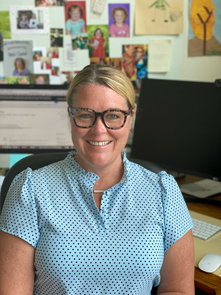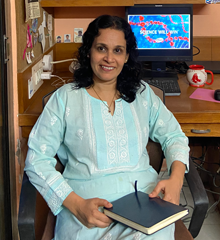Shot of a Lifetime: How Pfizer is Partnering with CMOs to Increase COVID-19 Vaccine Production and Reach More People

On a Sunday afternoon in May of 2020, Amy Genest’s phone rang. She recognized the number immediately and excused herself from her young daughters and her husband to take the work call. On the line, a colleague at Pfizer told her she needed help in securing contract manufacturing organizations (CMOs) to assist with vaccine production, when—and if—Pfizer and BioNTech were authorized to manufacture a COVID-19 vaccine.
“ That task was nothing new for Genest, who at the time served as New Products Lead, External Supply with Pfizer Global Supply, and regularly works with hundreds of CMOs that produce pharmaceutical products with the same level of quality, integrity, and compliance followed at a Pfizer-owned facility. She knew that in pandemic times the benefits of working with a CMO could be significant because they could increase production and allow for additional supply chain flexibility in support of the internal network.
That task was nothing new for Genest, who at the time served as New Products Lead, External Supply with Pfizer Global Supply, and regularly works with hundreds of CMOs that produce pharmaceutical products with the same level of quality, integrity, and compliance followed at a Pfizer-owned facility. She knew that in pandemic times the benefits of working with a CMO could be significant because they could increase production and allow for additional supply chain flexibility in support of the internal network.
One aspect of this challenge was different, however: the “if” part of the equation. How could she approach other manufacturing facilities when Pfizer didn’t have a viable vaccine to manufacture yet? How would she be able to scout facilities when travel was banned? On a more personal note, how would she and her husband, who was also working full-time, manage remote schooling for their daughters, ages 6 and 8?
The last question was answered when her mom and dad moved in and joined their pod in Andover, Mass.; her mom took on teacher duties for the girls. As that was going on, Genest scheduled virtual meeting after virtual meeting with potential CMOs. During those calls, amid the many unknowns, she focused on the things that were known. First and foremost, the facilities had to have capacity to take on the project and manufacture the vaccine at a large scale. And there were some specific demands around facilities and equipment, including storage room for at least 100 freezers (even in the early days, all of the vaccine candidates required cold storage), the electrical capacity and HVAC to support those freezers, and enough real estate to allow them to quickly re-create the processes used at Pfizer’s own manufacturing facilities.
“It was challenging,” says Genest. “Some potential CMOs were not as flexible to have that conversation and others were quite comfortable with the ambiguity and were willing to go all in with Pfizer and take the ride along with us and see what happens.”
Normally, the sourcing team would tour the CMO facility and have in-depth talks on-site. That wasn’t possible during the pandemic, so she and her team took virtual tours of the operations to view the facilities, from the entryway where raw materials arrive to the exit where the finished products depart. “We used our same robust due diligence process that we would normally use, which evaluates the quality, the compliance, the safety, and the integrity of the company that we're looking at,” says Genest.
Sourcing and vetting the numerous potential partners were just the beginning. Next, the technical talks, planning, and—they hoped—production could begin.
Transferring the technology
In August 2020, Poonam Mulherkar learned she would be leading the tech transfers for the vaccine. As the Director of External Supply Technology with Pfizer Global Supply, Mulherkar, who is based in Ahmedabad, India, regularly works with CMOs to transfer processes that create the products in a way that’s comparable to those made at “ Pfizer facilities. When she received a message from Genest about working on the vaccine, she said she was a little nervous about the time difference between India tween India and the United States and Europe, where all the action would be, but eager to be a part of the project. At the same time, she was adjusting to changes at home. Her 22-year-old son moved back from college to study remotely, and her 16-year-old son was also learning virtually. Along with her husband, the family of four was on lock-down in an apartment.
Pfizer facilities. When she received a message from Genest about working on the vaccine, she said she was a little nervous about the time difference between India tween India and the United States and Europe, where all the action would be, but eager to be a part of the project. At the same time, she was adjusting to changes at home. Her 22-year-old son moved back from college to study remotely, and her 16-year-old son was also learning virtually. Along with her husband, the family of four was on lock-down in an apartment.
By then, the Pfizer-BioNTech team had identified the particular vaccine that was the most promising: BNT162b2. That was an important piece of the puzzle, even if they still didn’t know the effectiveness of the vaccine or how much would be needed. It was Mulherkar's job to assemble a star team to put all the pieces in place so the CMOs would be ready to produce at scale when given the green light.
The tech transfer process entails a litany of tasks, among them: establishing the scope, schedule, governance and budget; purchasing equipment; performing practice tests to train operators on the manufacturing process; carrying out tests and conducting quality and safety audits to meet Pfizer’s standards and regulatory agency’ expectations; undergoing regulatory agency inspection and receiving approval.
For the COVID-19 vaccine, the team at the external facility would need to be trained on many aspects of this complex manufacturing process—from learning the intricacies of formulating lipid nanoparticles that encapsulate the mRNA and sterilizing the product to make it safe for injection to filling it into vials, labeling the vials, packaging them, and distributing them around the world.
It’s planned in such a way so that the processes are the same as those happening in Puurs and Kalamazoo, as well as at other CMOs. “If you think about it from a patient's perspective, they don't know or care which site the product is coming from,” says Mulherkar.
The typical tech transfer process can take up to three years from kick off to submission; but with the vaccine, they got the process down to between five and 18 months without sacrificing product quality or personnel safety to ensure expediency.
Refining and reflecting
For Mulherkar and Genest, 2020 and 2021 were a whirlwind that's expected to continue into 2022. Both are thankful to be a part of such an important endeavor. “This is my training and I'm so grateful that I got this opportunity to contribute in a small way,” says Mulherkar. While it’s been challenging for her boys to sometimes understand why mom is always distracted or absent at dinner, she believes they’ll look back on this time and find the silver lining. "Each person in the tech transfer team has their own COVID story’ and that funnels into the passion and ‘can do’ attitude everyone brings to the table.”
When Genest takes time to reflect, she admits it’s been tough. She cringes at the memory of overhearing her 6-year-old daughter say to her dolls, “Oh, I can't play with you right now. I have to go on a call.”
At the same time, she knows she found a once-in-a-lifetime chance to be part of the COVID-19 vaccine team and she’ll never forget it. “I think this is definitely one of the most rewarding years I've had, to work on a product that is impacting everybody around the world,” she says. “It was just such an honor to be part of it, and I will always look back on and really treasure this time.”
All told, as of September 2021, Pfizer and BioNTech together have more than 20 CMOs across four continents that are—or will be—helping to support the up to 3 billion doses manufactured in 2021 and up to 4 billion worldwide in 2022.
![]() Read more from the Shot of a Lifetime series:
Read more from the Shot of a Lifetime series:
- Shot of a Lifetime: How Pfizer and BioNTech Developed and Manufactured a COVID-19 Vaccine in Record Time
- Shot of a Lifetime: How Two Pfizer Manufacturing Plants Upscaled to Produce the COVID-19 Vaccine in Record Time
- Shot of a Lifetime: How Pfizer Developed its Own Raw Materials to Ensure a Steady Supply for the COVID-19 Vaccine
